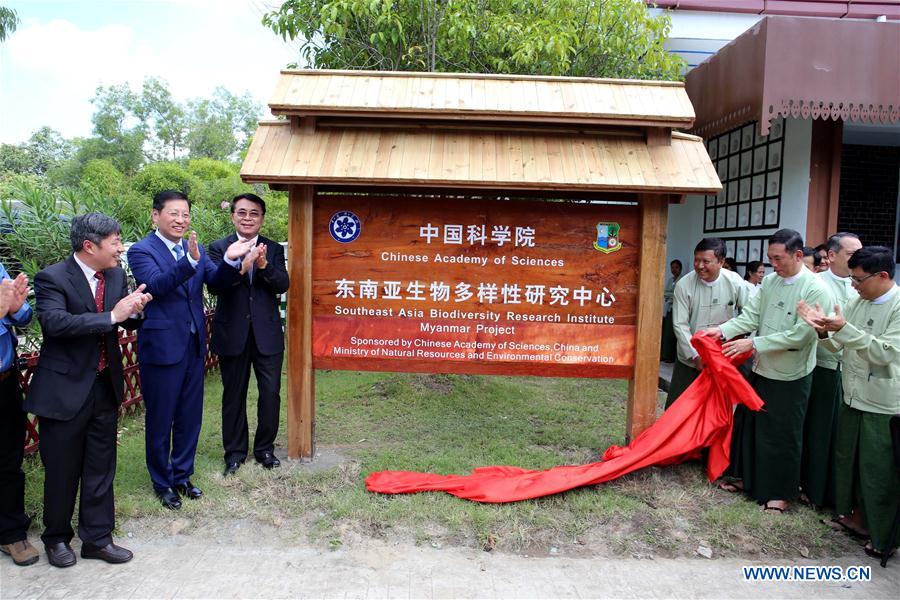


CAS President Bai Chunli (3rd L) and other guests attend the unveiling ceremony of Southeast Asia Biodiversity Research Institute.(PHOTO BY XINHUA)
As outlined in a 2016 report by the Xishuangbanna Tropical Botanical Garden of the Chinese Academy of Sciences (CAS), Myanmar is one of the least known global biodiversity hotspots within Southeast Asia.
It has tropical rainforests as well as wet evergreen, deciduous, subalpine, and limestone forests, in addition to shrub lands. These diverse ecosystems provide food, medicine and spiritual meaning for the ethnic groups in Myanmar. However, with the increase of economic activities
and the need for agricultural land, these ecosystems and their services are under threat. In addition, demands for certain species for medical, ornamental and other uses is driving some species to the brink of extinction. Urgent targeted action is needed to remediate these trends.
It was with that need in mind that the Southeast Asia Biodiversity Research Institute (SEABRI), established by CAS and the Myanmar Ministry of Natural Resources and Environmental Conservation, was unveiled in Nay Pyi Taw on October 12.
The SEABRI project, which has been implemented since 2013 under a bilateral Memorandum of Understanding (MoU), includes four labs for research on animal activities, biodiversity, aqua-biodiversity, traditional medicines, human and plant species.
It aims to enable international research on biodiversity and science among the countries along the Belt and Road and in Southeast Asia, based on China-Myanmar cooperation.
U Khin Maung Yee, permanent Secretary for the Ministry of Natural Resources and Environmental Conservation of Myanmar, expressed his belief that SEABRI will provide opportunities for the Myanmar counterpart to improve their capacities.
The SEABRI will serve as a powerful international platform for collaborative research and discovery, training Southeast-Asian youth who are outstanding at science and technology and pursuing Master’s and PhD courses.
Source: Xinhua